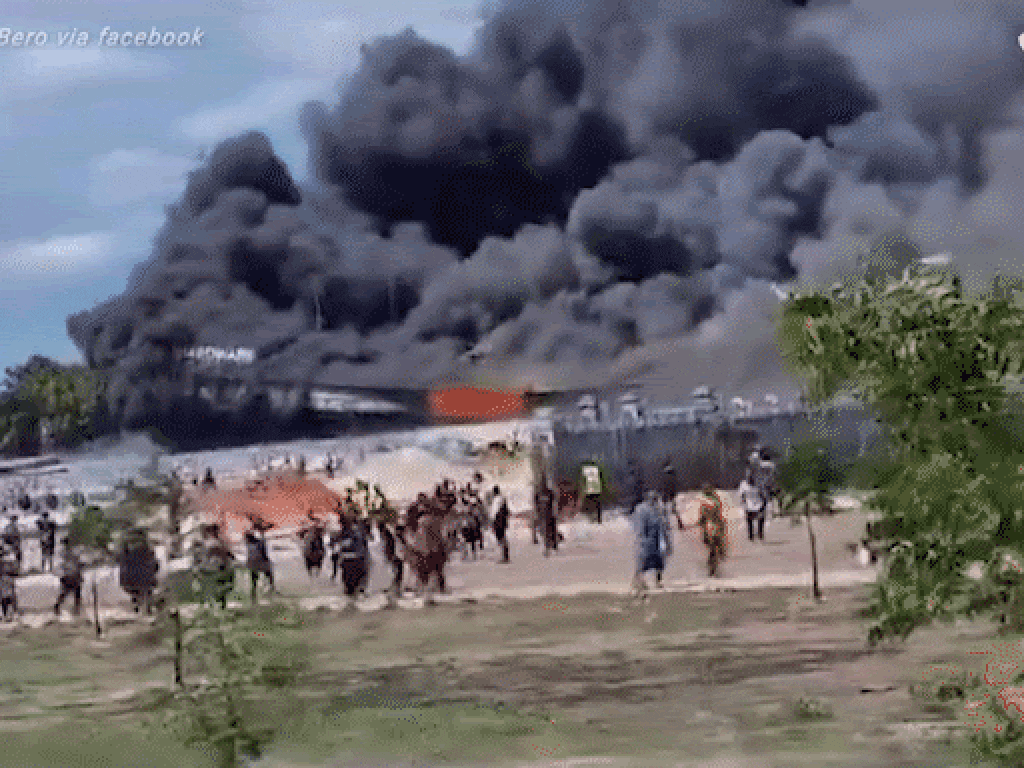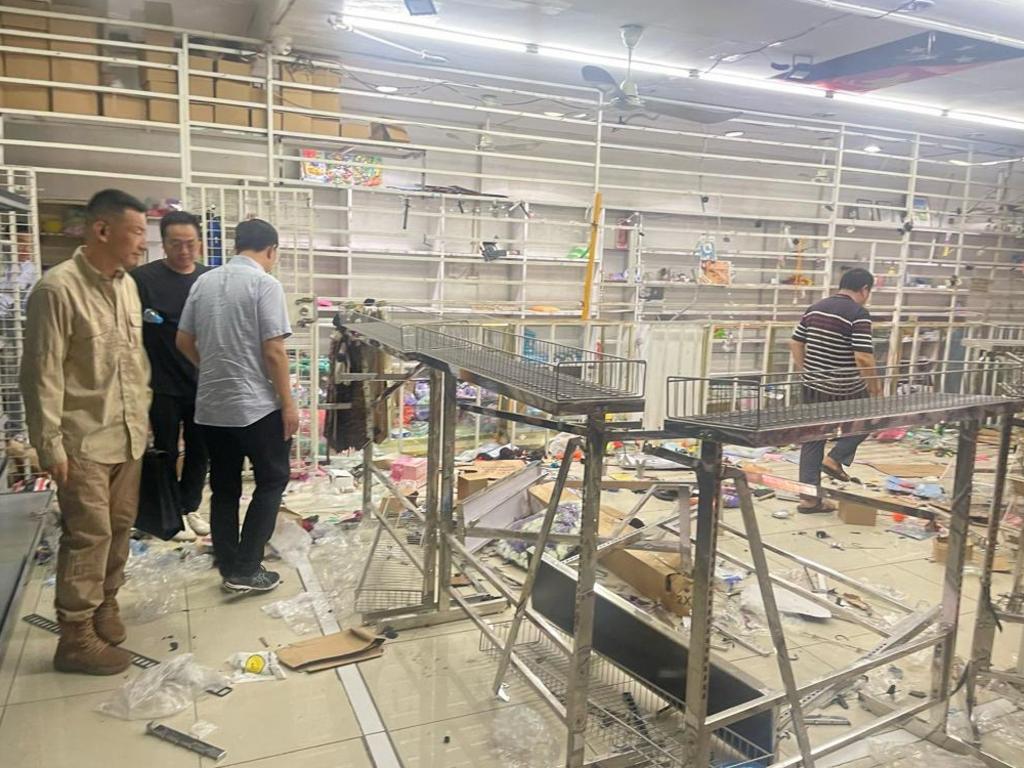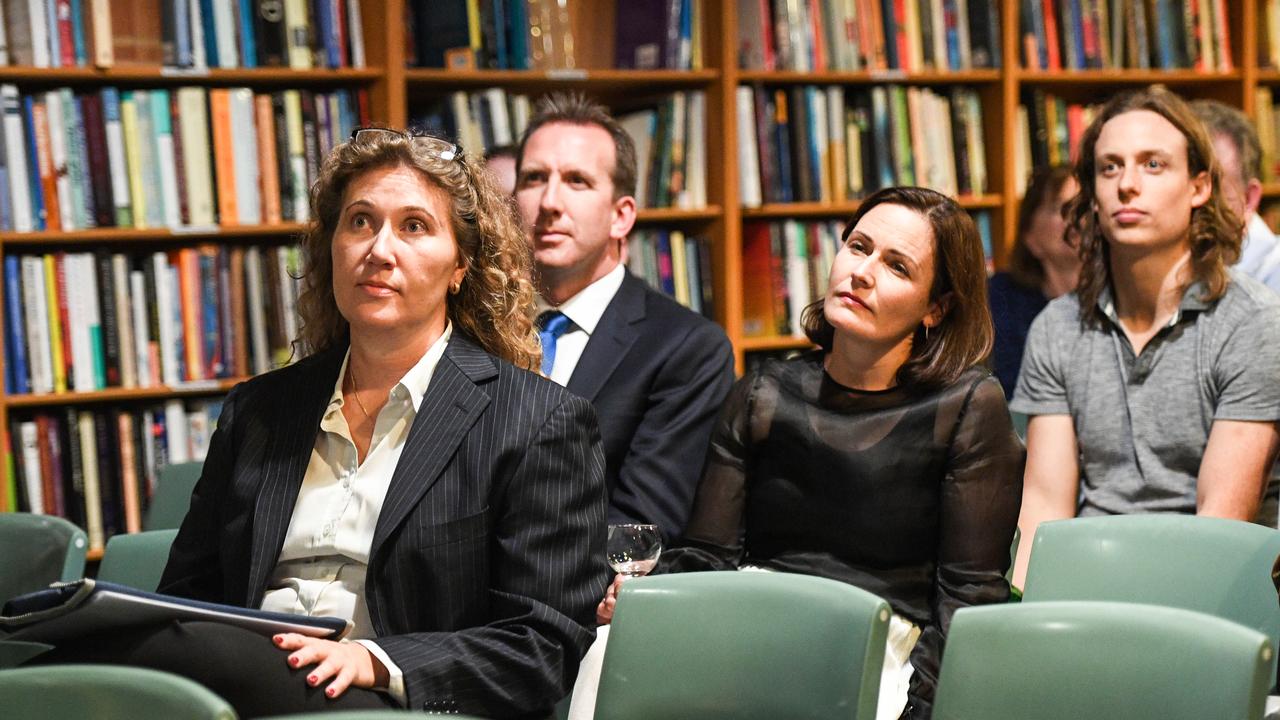Who will PNG call for assistance when Port Moresby is burning?
Things could get much worse, very quickly, in Port Moresby. Australia would scramble to come to our neighbour’s aid should it trigger the new treaty.
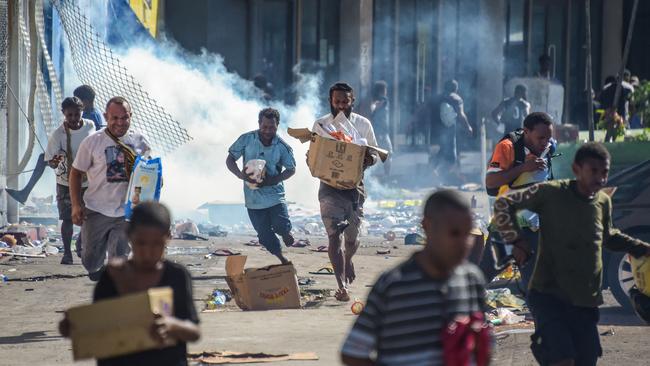
Large-scale rioting, looting and burning took place in Port Moresby on Wednesday, sparked by a payroll “glitch” deducting up to $120 a fortnight from public service pay packets, including Papua New Guinea police, defence and corrections personnel.
Several hundred uniformed people took strike action and marched on parliament to demand an explanation from Prime Minister James Marape.
The protests descended into 24 hours of looting and destruction in the capital’s shopping precincts. Sixteen people reportedly have died, nine in Port Moresby and seven in PNG’s second city of Lae, and police have been issued with live ammunition.
The PNG Post Courier reports that areas in Port Moresby were torched with firefighters “outnumbered and threatened by opportunists to attack the fire trucks”. The Boroko shopping centre was largely untouched “except for two Asian-owned mini-supermarkets”. In the Pacific the Chinatowns often burn first. Beijing will be watching.
For now, Port Moresby has quietened. Marape has promised to fix the payroll problem. A political crisis is brewing for Marape as government MPs resign.
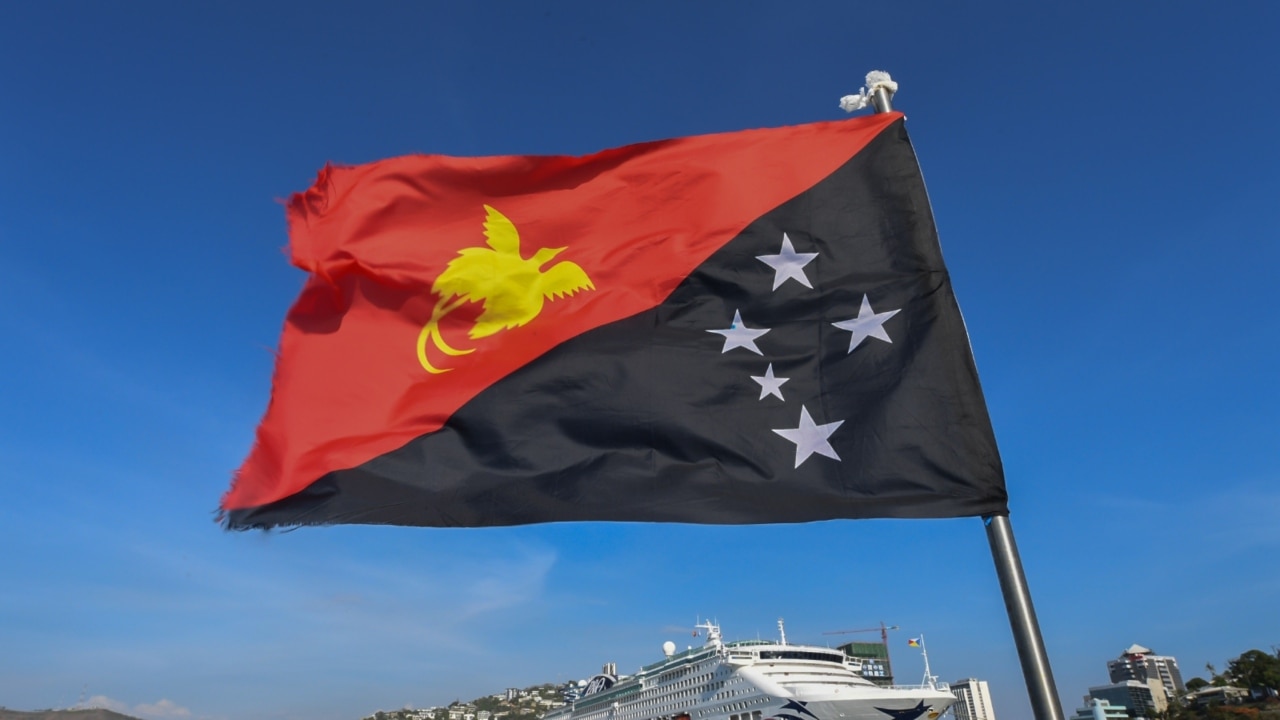
It may be that this incident blows over, as many others have, but we shouldn’t bank on that. Things could get much worse, very quickly. The Australian Defence Force, Australian Federal Police and other agencies will be considering their capacity to respond.
PNG could trigger articles five and six of the new bilateral security agreement signed with Australia on December 7 last year.
Article five of the treaty states, “In the event of a security-related development that threatens the sovereignty, peace or stability of either Party, or the Pacific region, the Parties shall consult at the request of either Party and consider whether any measures should be taken in relation to the threat.”
Article six requires that “the Parties shall use their best endeavours to respond”. At the treaty’s signing, Anthony Albanese stressed that it “is a legally binding framework to deepen our security co-operation”.
Marape focused on internal security: “I have a famous line that goes like this, if PNG fails, that everybody else up there will be on canoes coming to the mother country (Australia).” As such, PNG’s “internal security is in Australia’s interests as much as it is in PNG interest”. He welcomed the treaty: “This one is all embracing while a strength and greater focus on internal security.”
Albanese claimed the treaty would assist “in traditional areas of defence, policing, border and maritime security, and also non-traditional areas of cyber security, climate change, gender-based violence and critical infrastructure”.

Along with the treaty came “$200m in support of Papua New Guinea’s national security priorities”. What sounds like a lot of money is spread quite thinly over several years and in everything from police recruiting, the judiciary and gender, climate and cyber initiatives.
Marape’s focus on internal security points to an anxiety that violence in Port Moresby is never far below the surface. Once started the spread and scale of trouble are utterly unpredictable. He is right that Australia, “the mother country”, has a unique and irrevocable stake in PNG’s stability.
What could Australia do if Marape asked for a Defence commitment to stabilise Port Moresby? When I was deputy secretary for strategy in Defence between 2009 and 2012, this was the scenario that gave me the greatest worry. While we were heavily involved in Iraq and Afghanistan at the time, the US and other coalition partners did much of the heavy lifting to support Australian forces. Everything from artillery and air strikes to medical support, intelligence and most helicopter aviation came from our allies.
But like East Timor, a major stabilisation operation in PNG will force Australia to lead on all key military capabilities, particularly in the early hours and days of a deployment.
If Marape’s request was initially for Australia to protect Waigani, the suburb where parliament, the Supreme Court, government buildings and embassies are located, the immediate task would be to secure the airport at Jackson’s Field, 6km away. Everything depends on the circumstances, but an obvious option from there would be to move a company of troops (about 120 people) from the airport to Waigani by helicopter.
Within a week, we might have the HMAS Canberra or Adelaide “landing helicopter dock” vessels in Port Moresby harbour, able to sustain a larger military presence. But before that everything will come by air.
In the first days of the East Timor deployment, using Blackhawk helicopters at night gave our stabilisation force a decisive military and psychological edge over militia forces that did not have night vision gear.
The Timor operation was a success because of early planning, good generalship, smart adaptable soldiers, tactical intelligence, luck and helicopters.
No one knows if the violence in Port Moresby will lead in days or months to the need for an Australian military intervention. If the call came this week, we would be substantially less prepared than we were in September 1999. In truth, it was an almighty scramble back then.
A critical deficiency – although far from the only one – is the absence of a troop-lift utility helicopter because of an Albanese government decision to ground the Taipans early and unnecessarily. Who made that call and why? Cutting operational readiness at a time of growing strategic risk is not smart.
As much as the Albanese government wants security to be about climate change and gender, the moment will come when it will need a well-equipped ADF, ready to move.
We don’t have that right now.
In brief comments on Thursday, Anthony Albanese urged calm, said that his information was “not perfect” but he knew that “we haven’t had any requests from the PNG government at this time”.
There was no suggestion that he had spoken to Marape, or called a National Security Committee meeting, or had put ADF elements on a notice to move. Albanese is watching the crisis, not trying to manage it. The only thing worse for the Prime Minister than getting a call from Marape triggering the security treaty would be not to get a call.
What if Beijing offers Marape a police or military stabilisation force under the guise of protecting ethnic Chinese people? Does Australia wait for a call from Marape or offer support now?
Peter Jennings is director of Strategic Analysis Australia and was executive director of the Australian Strategic Policy Institute 2012-22. He is a former deputy secretary for strategy in the Defence Department (2009-12).


